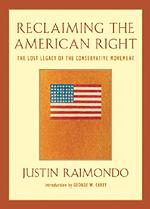 Will the Clintons ever go away? Every time I turn around, it seems, the leering and not very endearing face of either Bill or Hil is looming somewhere overhead, like a great jack-o’-lantern on Halloween. The persistence of dynastic politicians is one particularly unattractive aspect of being an empire — the Bush and Kennedy families also come to mind, of course.
Will the Clintons ever go away? Every time I turn around, it seems, the leering and not very endearing face of either Bill or Hil is looming somewhere overhead, like a great jack-o’-lantern on Halloween. The persistence of dynastic politicians is one particularly unattractive aspect of being an empire — the Bush and Kennedy families also come to mind, of course.
In the case of the Clintons, it’s apparent that the Obama administration is keeping its enemies close, appointing Bill as a special envoy to Haiti — the scene of one of his more spectacular foreign policy disasters — and Hil, of course, was prevailed upon (against her initial instincts, we now learn) to take over the helm at the State Department. About Bill, the less said the better: suffice to say that a more dishonest and manipulative American political figure hasn’t been seen since Richard Nixon and the Checkers speech. As a testament to Hillary’s diplomatic skills, or lack thereof, we have her latest outrage against reason and common sense in remarks made on the occasion of the anniversary of the Tiananmen Square incident:
"A China that has made enormous progress economically, and that is emerging to take its rightful place in global leadership, should examine openly the darker events of its past and provide a public accounting of those killed, detained or missing, both to learn and to heal."
There is only one proper response to this: Look who’s talking!
Before an American secretary of state gets up on her hind legs and lectures the rest of the world about "the darker events of its past," complaining about the lack of "a public accounting of those killed, detained, or missing," let’s look at the record: in 1993, then-attorney general Janet Reno ordered the murder of 76 people in Waco, Texas, on grounds that didn’t sound all that credible at the time, and, in retrospect, turn out to have been entirely dubious and self-serving. Can it really be that the U.S. government — yes, the same people who ordered this and this — is hectoring China for unlawful detention?
As a great philosopher once said, oh, puh-leeeeeeeze!
No one disputes the fact that the suppression of the Tiananmen Square revolt was a brutal act, one that belied the Chinese government’s claim to enjoy popular support in the face of what it characterized as a "counterrevolutionary" gathering. Yet what, exactly, was being suppressed? This is where the Western-spun narrative veers markedly away from reality.
To begin with, what was the uprising about? What demands were the students — and most of them were indeed students, rather than ordinary workers and peasants — intent on pursuing to the end? The initial protests were over reductions in student subsidies. As an economizing measure, the government decided to drastically cut student allowances, while China’s generous foreign scholarship program, which enabled many students from Africa to study in Chinese universities, was continued, in spite of the cutbacks.
This outraged the fiercely nationalistic Chinese students, who, in the winter of 1988, used it as an excuse to rampage through the living quarters of African students, injuring 13. What began as a lynching miraculously turned into a "human rights" protest, as 3,000 demonstrators showed up in Nanjing, where slogans such as "Kill the black devils!" mingled with demands for "political reform."
From Nanjing, where the movement originated, anti-African demonstrations spread to other cities, notably Shanghai and Beijing. A major motivation behind the demonstrations was apparently the success African students had with Chinese women. That the anti-African riots were the prelude to the Tiananmen protests, the spark that started a roaring fire in the center of Beijing, was evidenced in the slogans and banners raised by the students in the square, such as "No Offend Chinese Women" [sic].
Imagine if such sentiments were displayed at an American university! The miscreants would be rounded up, charged with "hate crimes," and summarily shipped home with their tails between their legs. Western reporters didn’t see fit to report on this aspect of the "democratic" uprising in Tiananmen Square.




